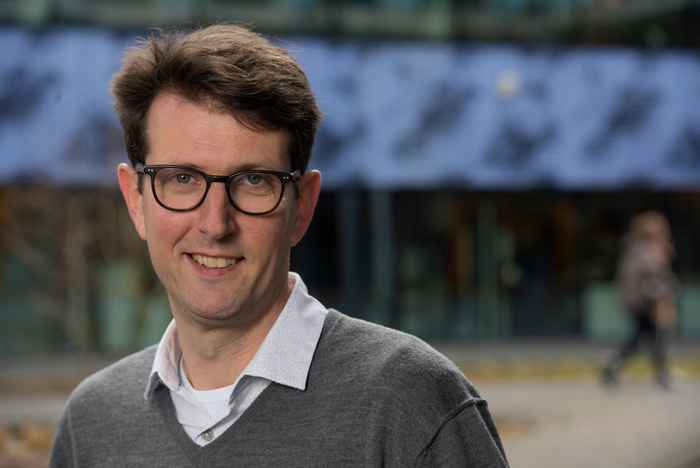UvA Informatics Institute and Thales strengthen ESI open-innovation ecosystem
Investing in mastering system complexity
25 January 2021

ESI's ecosystem, based on open innovation, plays an important role in this. Together with universities and partner companies, ESI develops methodologies and tooling that are in line with the vision and needs of the high-tech industry, making use of the latest insights from universities. In an industry-as-a-lab setting, system engineering methodologies are developed, tested and validated on site at and with partners.
ESI has a solid base of loyal industrial and academic partners. From 2021, the Informatics Institute of the University of Amsterdam (UvA) and Thales will also be part of ESI's Partner Board. The new partners thereby underline the importance of systems thinking and the development of methodologies and tooling for the high-tech industry in the Netherlands.

Strengthening cooperation with industry for University of Amsterdam
For the past year, ESI senior researcher Benny Akesson has been a professor by special appointment within the Parallel Computing Systems (PCS) research group of the Informatics Insitute at UvA's Faculty of Science, where he holds the chair “Design Methodologies for Cyber-Physical Systems”. Prof. Andy Pimentel, chairman of the PCS research group, is very pleased with the UvA's accession to ESI's Partner Board, and sees enormous added value in this collaboration. For example, the PCS group brings in new expertise in the field of (modelling and simulation techniques for) the analysis and optimisation of extra-functional behaviour - such as performance, energy consumption, and reliability - of embedded and cyber-physical systems. Professor Pimentel: “I see many opportunities for cross-fertilisation and cross-learning both within the ESI ecosystem and between the ESI and UvA ecosystems. With this partnership we hope to further strengthen the industrial cooperation of the PCS group.” Wouter Leibbrandt, ESI Scientific Director, adds: “I welcome the accession of the UvA. This enriches the knowledge base on which ESI can build. It is also a recognition of the important role that ESI plays in enabling university knowledge to benefit the Dutch economy.”
Strengthening the innovation position for Thales Naval
Thales has been involved in ESI before. Participation in ESI is of added value particularly for the development of systems for the navy. Roel Aalbers, Technical Director Systems at Thales Naval: “From Naval we have had excellent collaboration with ESI in several research projects in recent years. With the renewed accession to the partner council, ESI's knowledge, experience and ecosystem will be used to further strengthen our innovative position. I am looking forward to working with the partners and expect a positive effect with regard to possible new research projects.”
Frans Beenker, Business Director ESI adds: “With the arrival of Thales, most of the leading Dutch players in the high-tech industry are participating in ESI. I am sincerely proud that this form of open innovation is possible in the Netherlands.”
ESI started in 2001, with the cooperation of the Ministry of Economic Affairs, as a Public Private Partnership. Since 2013 ESI has been part of TNO. The Partner Board now consists of ASML, Canon Production Printing, Nexperia, Philips, Thermo Fisher Scientific, Thales, Delft University of Technology, Eindhoven University of Technology, Radboud University, University of Twente, TNO and the University of Amsterdam.
About ESI (TNO)
ESI is a 'Joint Innovation Initiative' of TNO. ESI contributes to the competitiveness of the Netherlands by developing methodologies for high-tech system design in light of the growing complexity of systems. Characteristic of the ESI working method is the research programme shared with partners, the expertise of employees specialised in systems engineering, experience in the high-tech industry, specific attention for knowledge dissemination, and a focused programme for competence development.
The main goal of ESI is to bring high-tech system design from craft to a scientifically based technical discipline. This is done on the basis of research programmes with both universities and high-tech companies. Research programmes are tailored to different application domains, such as microelectronics production, medical systems, high-quality printing solutions, digital consumer products, safety and security, logistics, material analysis.
ESI. Managing complexity in cyber physical systems.
About the PCS group - University of Amsterdam
The Parallel Computing Systems group (PCS) of the University of Amsterdam conducts research into the design, programming and run-time management of multi-core and multi-processor computer systems. Modelling, analysis and optimisation of adjacent relevant non-functional aspects of these systems, such as performance, power and energy consumption, reliability and the degree of productivity to design and program these systems are also part of the research programme.
About Thales
Thales (Euronext Paris: HO) is the global technology leader shaping tomorrow's world, today. Thales offers solutions, products and services to customers in the aerospace, aerospace, transport, defence and digital identity and security sectors. With 83,000 employees in 68 countries, Thales generated revenues of € 19 billion (on a pro forma basis, including Gemalto over 12 months) in 2019. In the Netherlands, some 2,200 employees work in Hengelo, Delft, Huizen. Eindhoven, Breda and Rotterdam on the development, production and integration of high-tech systems. Thales Nederland focuses mainly on radar, command & control, communication systems, identification and authentication and cyber security for the defence, transport and security market.
Building a future we can all trust.